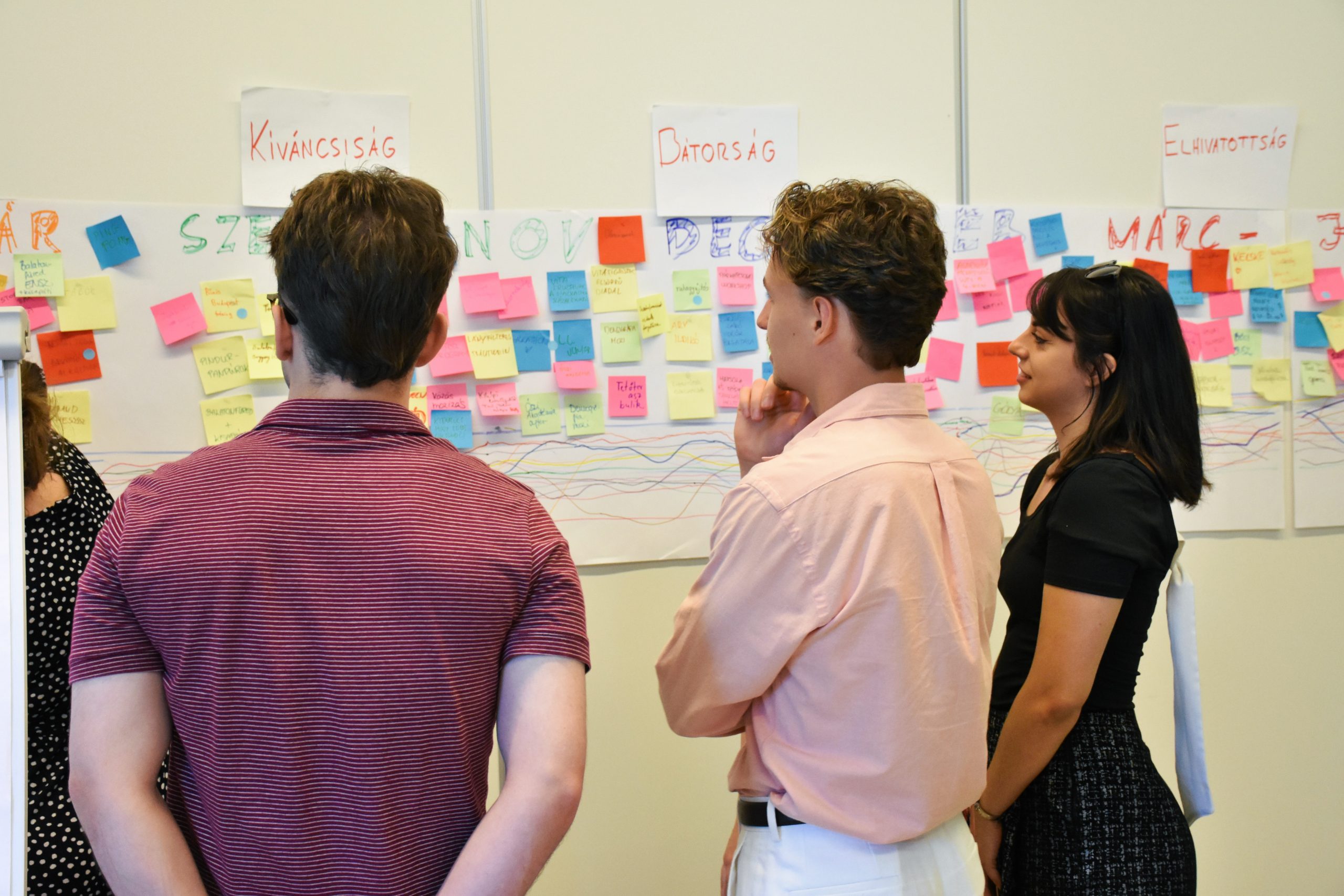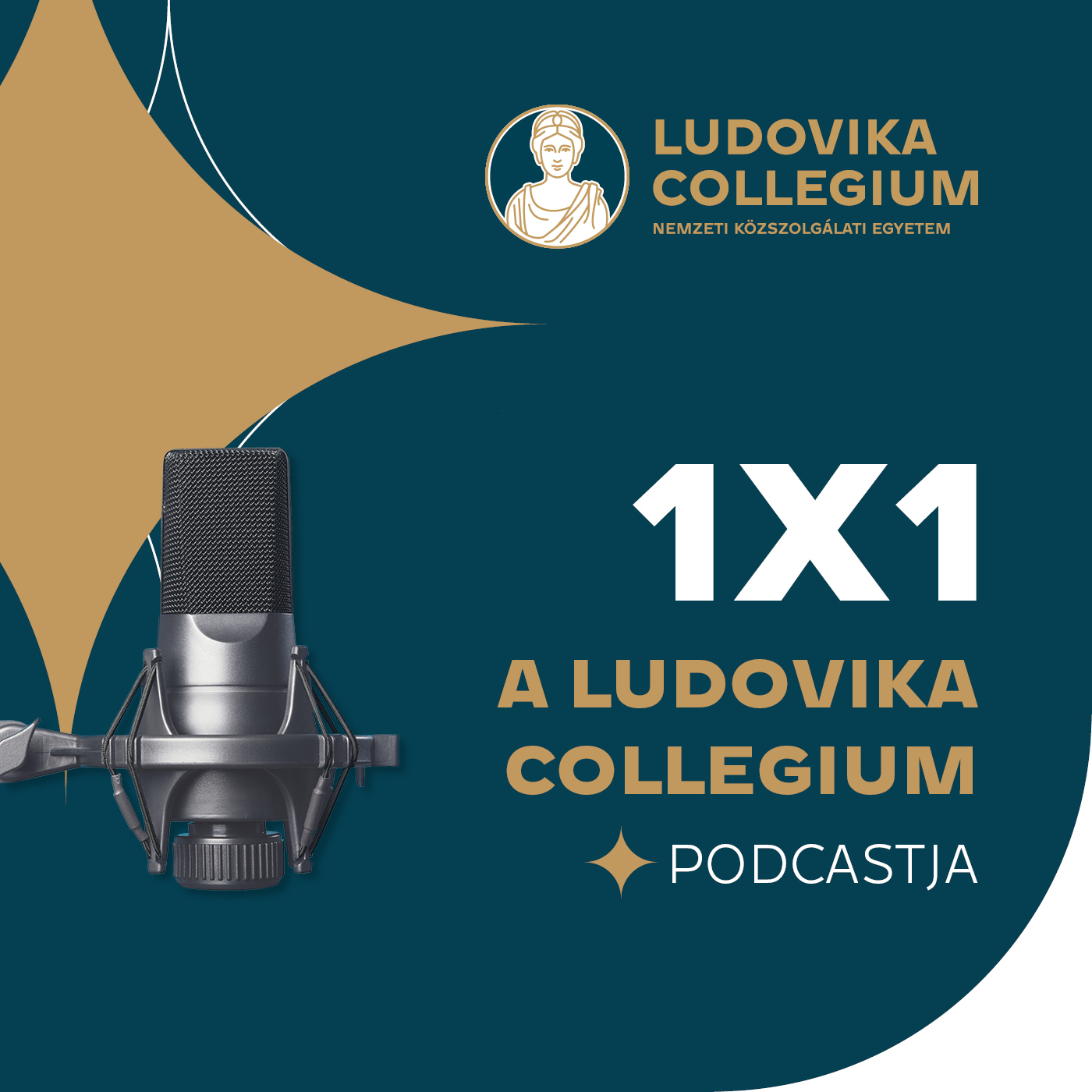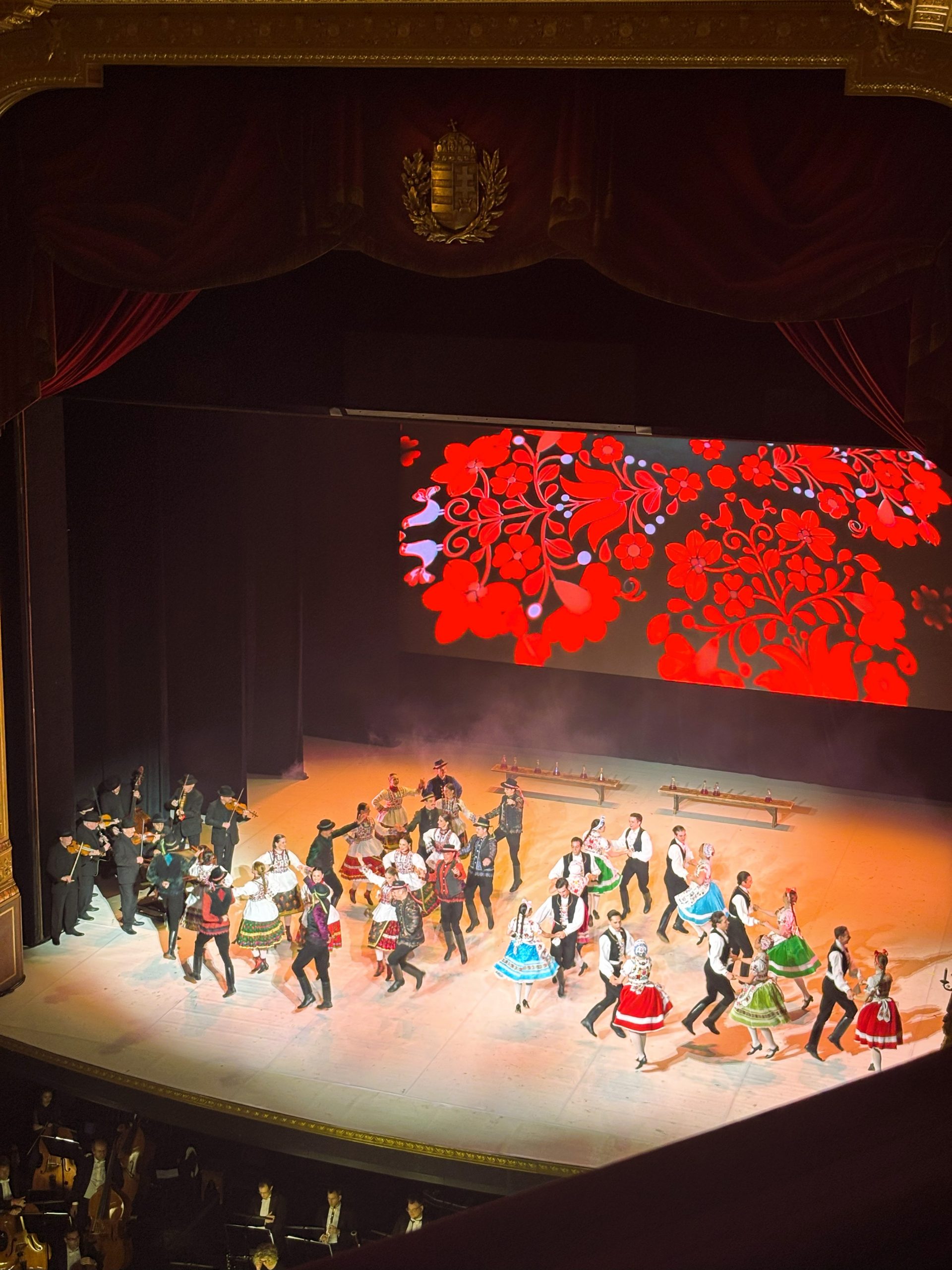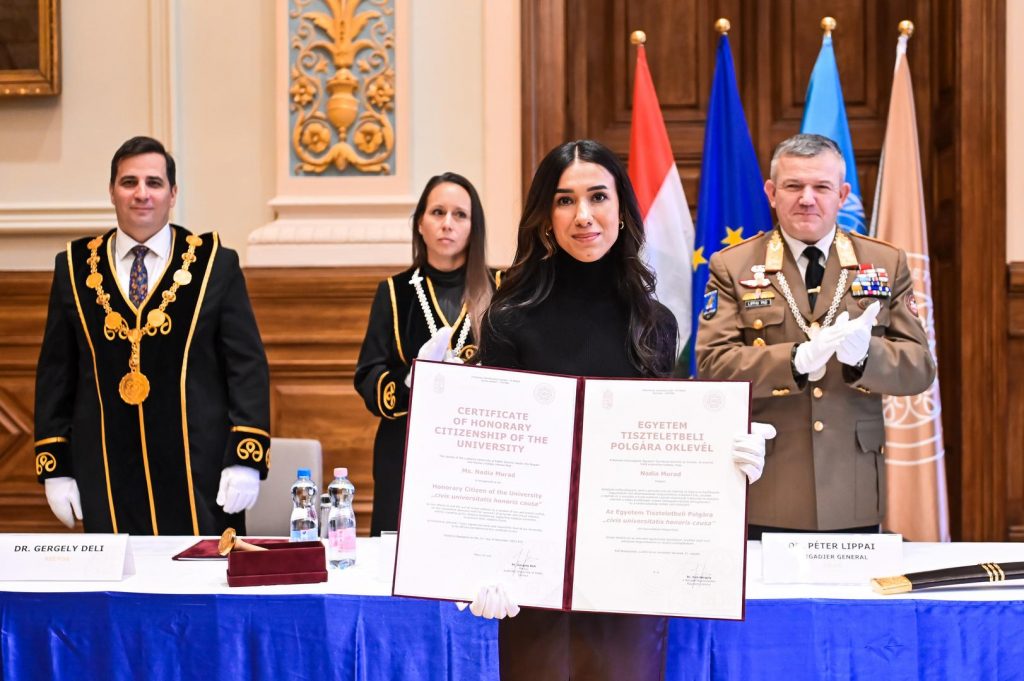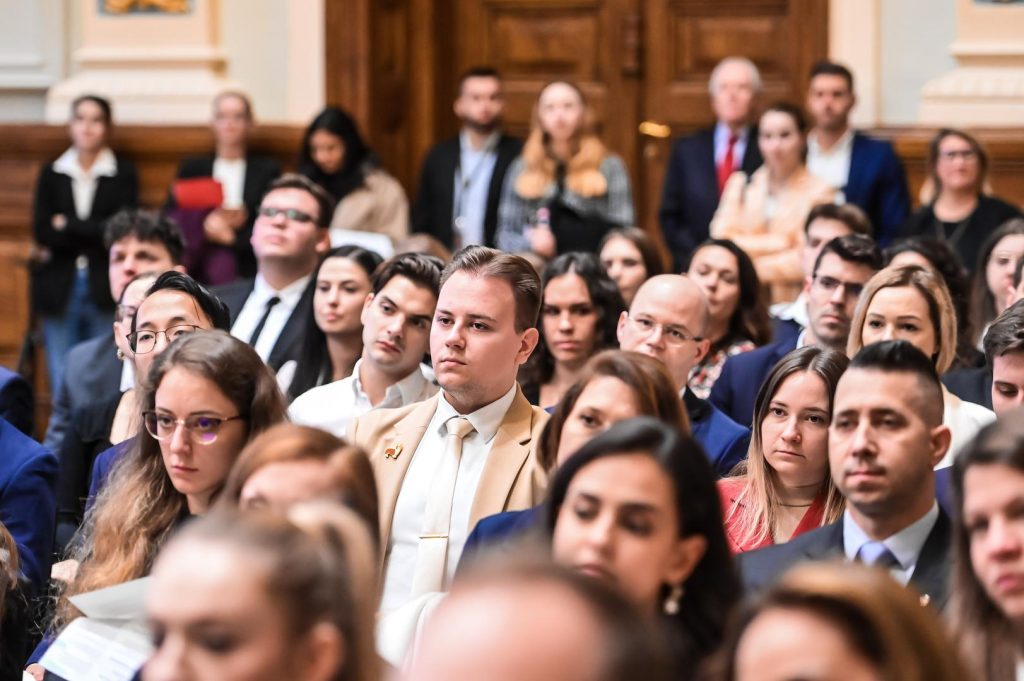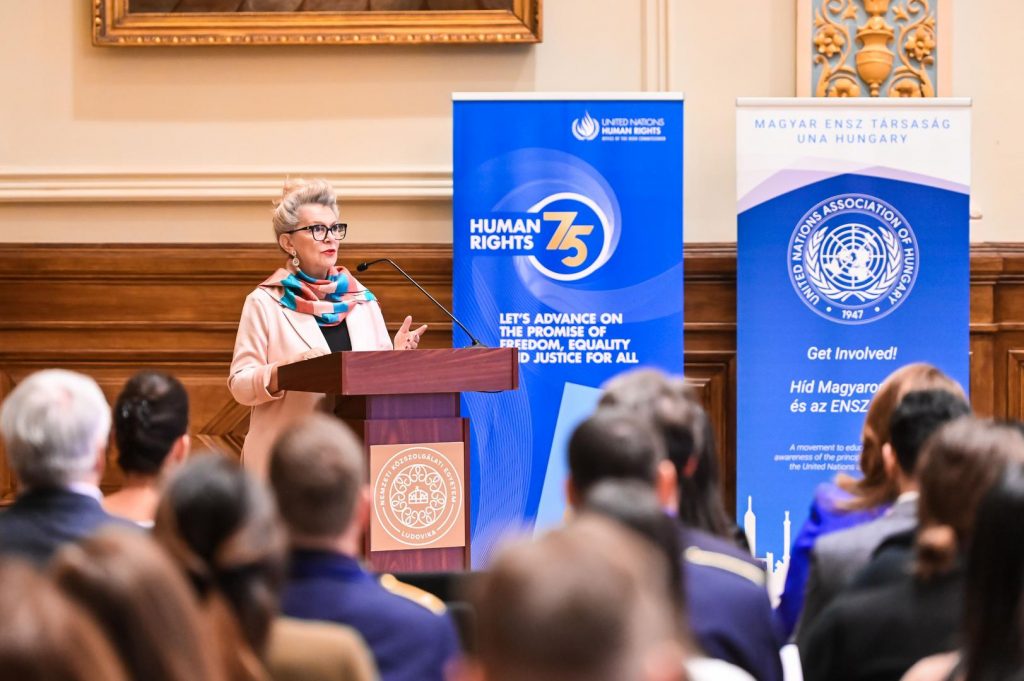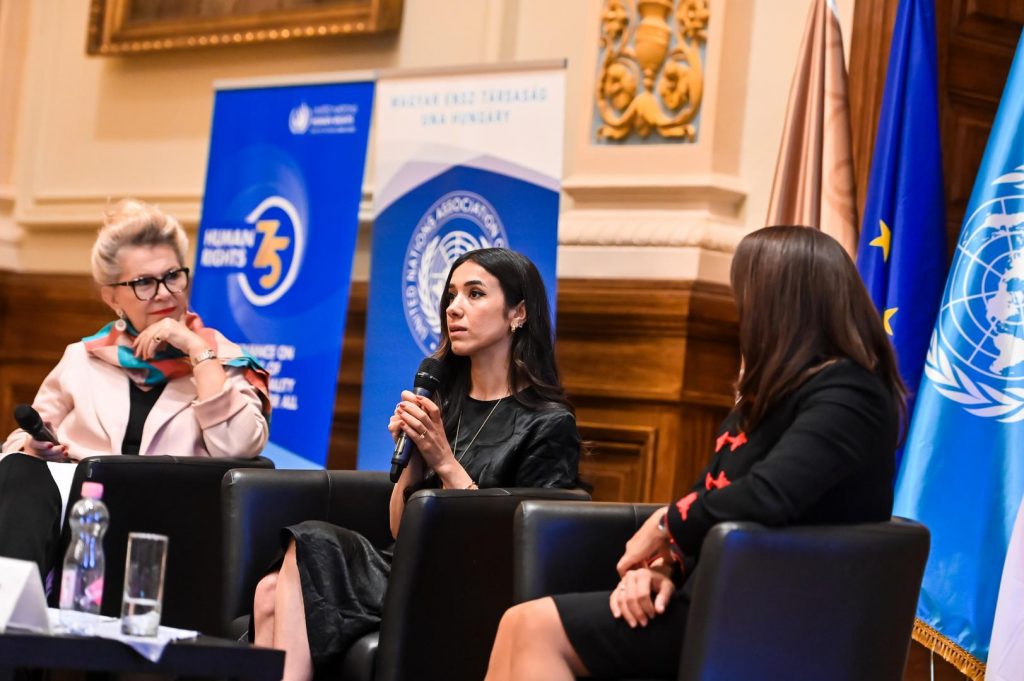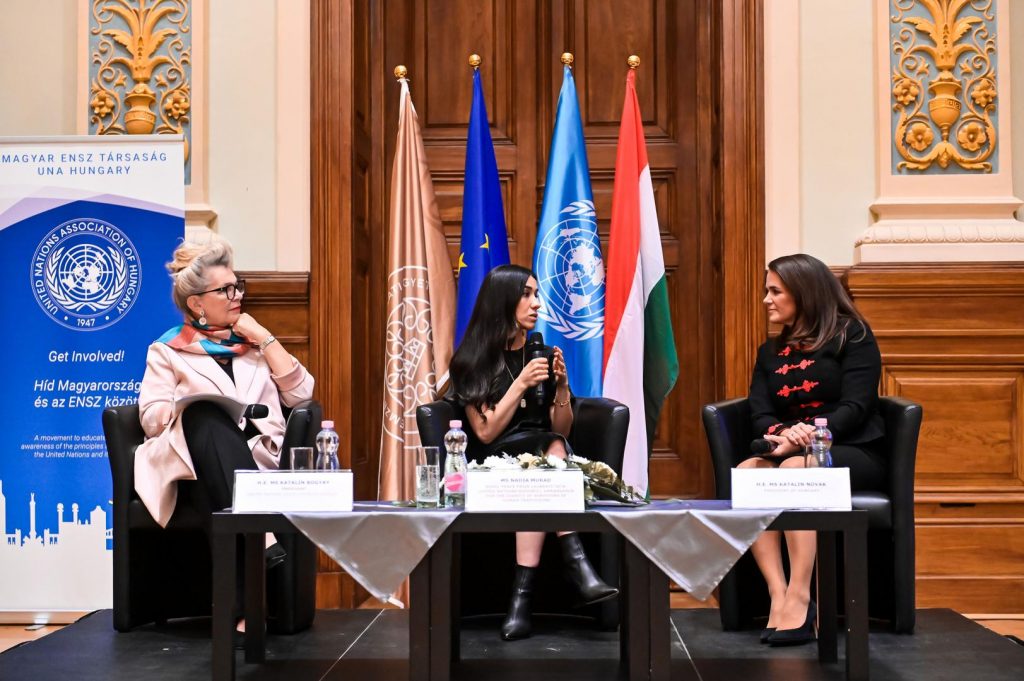
On Human Rights Day, December 10, 2023, we celebrate the 75th anniversary of the Universal Declaration of Human Rights. On this occasion, H. E. Ms. Katalin Bogyay, the president of the United Nations Association of Hungary, organized an event in collaboration with the Ludovika University of Public Service to celebrate this anniversary.
Following H. E. Ms. Katalin Bogyay’s introductory remarks, we had the honor of hearing H. E. Ghada Waly, Executive Director of the United Nations Office on Drugs and Crime and Director General of the United Nations Office in Vienna. In her remarks, she stated that the Hungarian UN Association is the country’s second-oldest non-governmental organization, demonstrating Hungary’s long link with the UN. She emphasized that the UN charter is based on the principle that human prosperity is dependent on respect for the rights and dignity of all people. The Universal Statement of Human Rights, she said, is a natural extension of the charter. Its significance is also reflected in the fact that it is the most translated document in the world, with translations accessible in over 500 languages.
The panel discussion between H. E. Ms. Katalin Novák, President of Hungary, and Ms. Nadia Murad, Nobel Peace Prize Laureate’2018 and United Nations Goodwill Ambassador for the Dignity of Human Trafficking Survivors, was the event’s high point. H. E. Ms. Katalin Bogyay moderated the conversation. Her first question was directed at the esteemed guests, who were asked what message they wished to give on this occasion. Nadia Murad stated that it is critical that more people have access to human rights, and that we must fight for all people. We can talk about the Holocaust and learn from it, but there are just too many horrific things happening in our lives today. Katalin Novák’s message was that this declaration is more than just good words; it is a part of our daily existence. We should never take human rights for granted; we must fight for them daily. Human rights are only valuable if they are upheld.
Nadia Murad wrote The Last Girl („Az utolsó lány”) about her survival in ISIS captivity, which is a genuinely inspirational narrative. Her mother was a single mother who raised eleven children in a small community where she grew up. She was the sole student in the village, and she taught herself Arabic because all of the key positions were in Arabic. She was taught that Iraq is their only homeland, so she feels very linked to it, and she never dreamed that ISIS could attack Iraq and the entire world would stand by and do nothing. Six of Nadia’s brothers were killed during the attack, and her mother was killed soon after, their bodies swept into mass graves. Nadia was compelled to join the ISIS slave trade. She was kidnapped by several militants and raped and beaten repeatedly. She eventually made a narrow escape through the streets of Mosul, finding shelter and a home. She later became a human rights activist to draw attention to the ongoing genocide in Iraq.
On this occasion, the power of women was also highlighted, and Nadia told the audience that she was very proud of her mother for always being there for the family. She worked every single day to help, gave hope, and didn’t complain, according to her. Unfortunately, her mother’s desire is unsatisfied because she has yet to be identified. On a personal note, she stated that there are many times when she feels it is not right that she survived while others did not, with which she has to live every day. Katalin Novák went on to say that being a woman and a mother is important. Women, she claims, do not seek out conflicts; rather, they seek to avoid or resolve them. Her motto is to solve problems rather than create them.
She founded the Nadia Initiative to assist displaced people in rebuilding their homes. There are 150 million displaced people worldwide, and she realized during her escape from Iraq to Germany that there is no way to form communities in camps. To live a decent life, displaced people must return home and rebuild their homes. So she started this initiative to assist them in resuming their lives at home. As a result, they began demining the areas, providing clean water, and rebuilding 500 farms for families, roads, and 65 schools. Her main goal is for people to rely on their work rather than on aids. So one of her top priorities is to return home and help her community.
She mentioned education as being important for everyone in her future plans. This is the only thing no one can take from you. She wants to learn about others and history because the past can teach us so much. Her long-term goal is to teach and open her own beauty salon. She attends university in the United States, but she also tries to teach others by traveling around the world and sharing her story. She emphasized that everyone has a story and thus everyone is important. She went on to say that not only everyone, but every culture, is unique and distinct. If you believe that your culture and religion are superior, this will influence your other decisions. Despite ISIS and other threats, Iraq has a lot to teach the rest of the world, so it is critical to be mindful of what you see in other people. Katalin Novák concluded by emphasizing that there is no such thing as a superior culture. So changing a country because you believe your culture is superior is not a sign of respect for that country.
Author: Máté Sahin
Photo: Dénes Szilágyi, Bori Szilágyi

